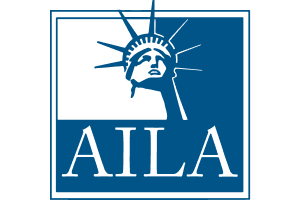H1B Extenuating Circumstances Transfer
There are instances in which a physician who has been granted a waiver to work in a designated underserved area is unable to complete the three year waiver obligation and wishes to transfer employment to fulfill the obligation. An H-1B transfer of the waiver employer may, under certain circumstances that are considered to be extenuating, be granted to a physician that was previously approved for a three year waiver and seeks to move to another employer located in an underserved area. An H-1B transfer based on extenuating circumstances allows a physician to transfer to a work location in the same or another state, provided the new work location is located in a federally designated underserved area. The physician is not required to submit a new J-1 waiver application and need only submit a new H1B petition to USCIS. As indicated above, the transfer need not be within the same state in which the initial waiver was granted.
Extenuating circumstances are those circumstances that are outside of the control of the physician and that necessitate departure from the physician’s current workplace. Extenuating circumstances may include unforeseen personal hardships (medical issues/family separation), work location closure by the employer, breach of contract by the employer, an employer’s failure to pay the physician the prevailing wage, racially or sexually discriminatory practices, employment requirements that do not allow the physician to practice medicine in an acceptable manner such as requirements to order unnecessary tests, see too many patients, work excessive hours, commit insurance fraud, or provide subpar/unethical medical care.
It is extremely important to be able to document the compelling circumstances that necessitate the transfer. Physicians are urged to collect as much corroborating evidence as possible in these situations including copies of emails/letters from the employer, other records that document the issues addressed in the application and potential support letters from other parties that may have knowledge of the situation. While a letter of release/support is not required from the State Department of Health that approved the initial J-1 waiver, such a letter can often be helpful in documenting the reasons for the transfer. The more evidence that the physician can provide in these cases, the better. Our office will also work with the applicant to draft a detailed affidavit that discusses all of the issues that have lead the physician to seek a transfer of waiver employment.
H-1B transfers based on extenuating circumstances must also be submitted with evidence that the physician will complete the H-1B in a federally designated underserved area. This is the case even if the applicant was initially approved for a FLEX (non-underserved area) waiver. If the transfer is approved, the physician can complete the remainder of his/her three year waiver obligation with the new employer. Whenever possible, the physician seeking such an extenuating transfer should proceed with caution, not terminating the present waiver position until the transfer is granted.
If you are considering such a transfer, please contact one of our attorneys to discuss the pros and cons involved in submitting such an application at info@jeffries-law.com.


